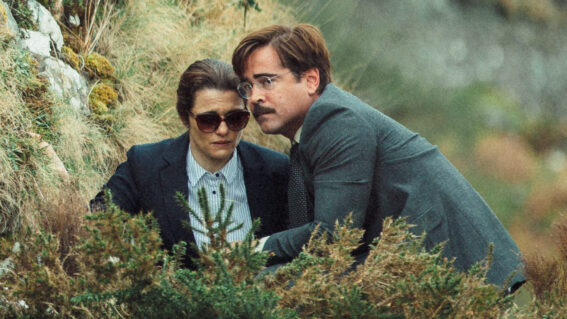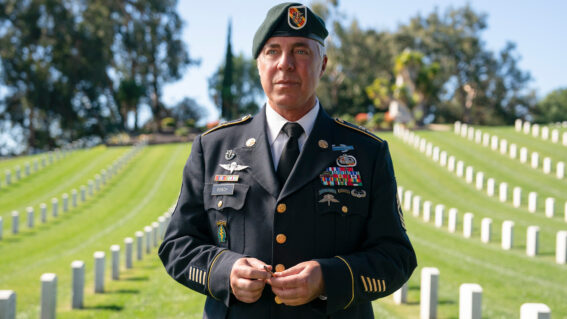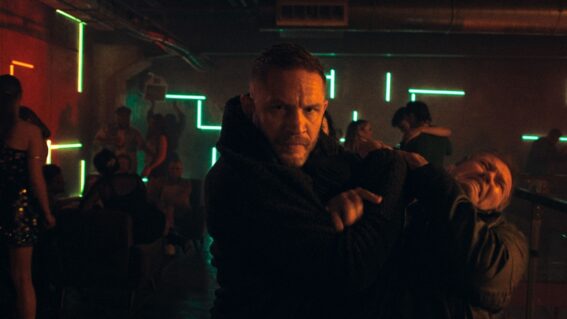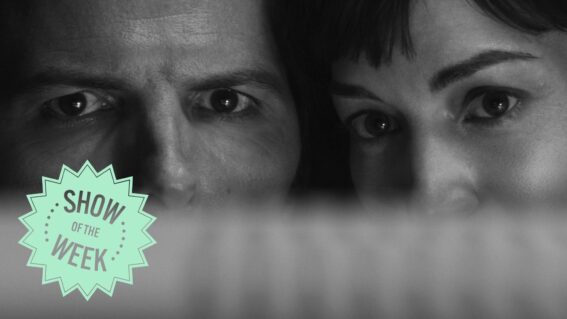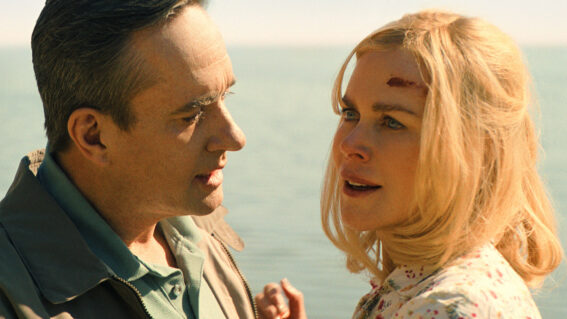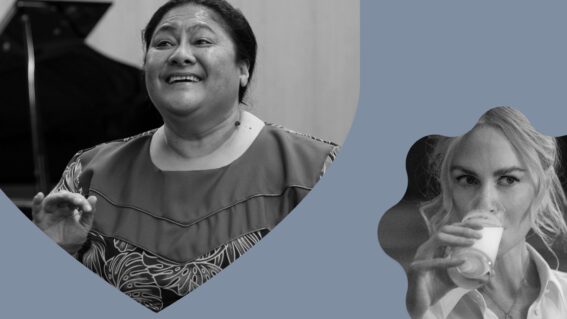Interview: Abraham Lincoln Vampire Hunter author Seth Grahame-Smith
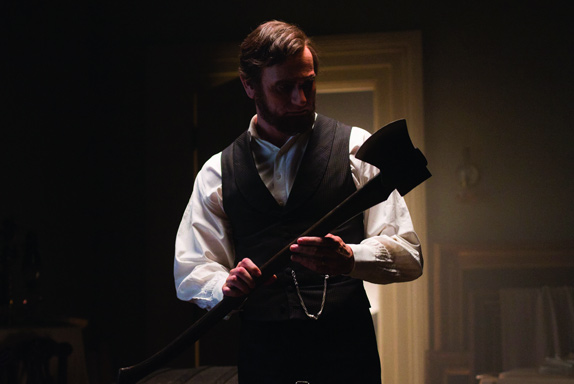

I recently wrote about my first impressions of Abraham Lincoln: Vampire Hunter after seeing a couple of scenes from the film, including a chunk of its finale which was a bit tough to discuss without ruining it. The other thing that happened after this screening was the opportunity to interview writer Seth Grahame-Smith. He’s the author of the book of the same name, as well as Abraham Lincoln: Vampire Hunter’s screenwriter. He was also responsible for the bestselling Pride and Prejudice and Zombies as well as writing the screenplay for Tim Burton’s Dark Shadows. I got some time to chat with Seth, and here’s what happened:
Thanks for coming all the way down here to show people some of your film and talk to us about it.
We’re trying to get the word out that this is not a joke. The title is the joke – the film is dead serious and visceral and muscular and bad-ass.
It’s a title that you can picture people stumbling across in the video store for a long time to come.
I hope so. The title is the provocative thing. It’s the absurd promise the movie makes, and the movie then becomes a very serious, very dark realisation of that promise.
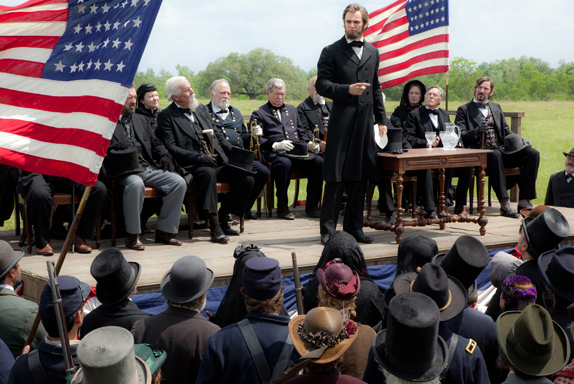
Much of your writing fuses pop culture elements together (Pride and Prejudice and Zombies for example). What is it about the process of combining these things that works so well for you?
I don’t know… To me it’s an interesting way of paying homage to the genres that I love. I’m a child of pop culture, a child of 80s and 90s movies. It’s interesting now, you see genre movies that may have been straight to video or B-movies a generation ago getting these prestigious treatments, whether they be Snow White and the Huntsman or this movie. Genre is suddenly mainstream in a way and it’s an exciting time to be an author or a filmmaker that works in fantasy or horror or science fiction.
Maybe that’s by virtue of – I call them the Comic-Con generation – a whole generation of people that are online and are very aware and very active fans like I have always been. We’re coming into our own now and getting to make this content. So this content is informed, for me, by the movies of Spielberg and Tim Burton and James Cameron and the work of Joss Whedon and the work of Ridley Scott and those things that are just in my fanboy DNA that interest me.
I don’t see what I’m doing as anything new, look for instance at what Joss did in the early 90s with Buffy the Vampire Slayer. That was a deconstruction of a typical vampire movie, as was The Lost Boys in a different way. This is nothing new. For me it’s a way to fuse all those elements that I’m a fan of, whether they be history, whether they be horror, whether they be fantasy or science fiction and do them in a slightly left-of-centre way.
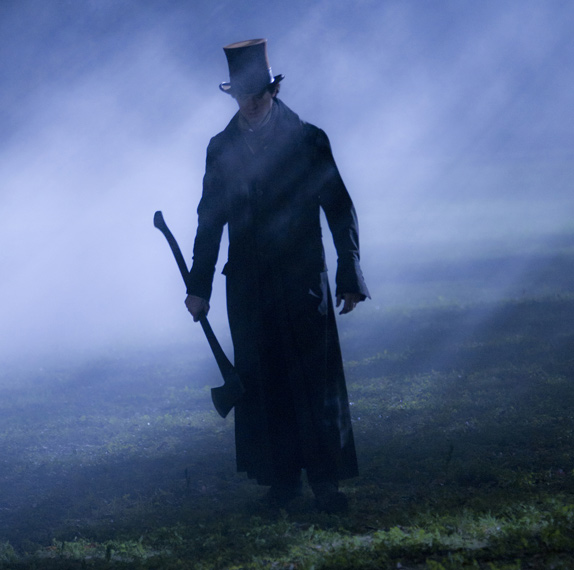
One of the other things I found interesting at the screening was hearing how hands-on you were with the film. Is that what the whole process was like?
I went away for a while and Simon Kinberg came in and did some work, and then I came back and did some more work on the film. I don’t know, maybe I stupidly wanted to be hands-on because I came up wanting to be a filmmaker and wanting to be a screenwriter more than I ever wanted to be an author, I mean film and the cinema’s my first love. Since then I’ve started a company and gotten a deal with a studio as a mechanism for staying involved in my books. Traditionally authors they’ll write something, hand it off, and hear “see you at the premiere, thanks very much”. You really have no say and no guidance in terms of what comes of it.
It was an interesting and sometimes frustrating process learning how to do this on the fly. Adapting your own book is hard enough, because your ego gets in the way and you become precious even when you tell yourself you won’t be. You just have to remember that it’s a different medium, the director is king and you have to put your own ego aside and service the directors’ vision of what the film is going to be. The book is what it is, and the film is different, but it’s something exciting and something that I think is wildly original in a world where so many of the movies that come out seem like exercises in cynicism and marketing. This at least, even if it falls flat on its face, even if people see it and can’t get their heads around it and reject it as being too crazy or whatever, at least it’s something audacious.
It’s a fully-realised idea as opposed to coming out of the sausage factory…
Well that’s it. Maybe I say this too much, but I truly believe that this is something that is just weird and exciting and original. It’s not a film based on a toy or a video game or a board game or a sequel or a reboot or a prequel. It may not be for everybody – look, I don’t expect the film to be a critical darling – but I expect it to entertain the hell out of a great number of people because it’s a wildly entertaining and fun film.
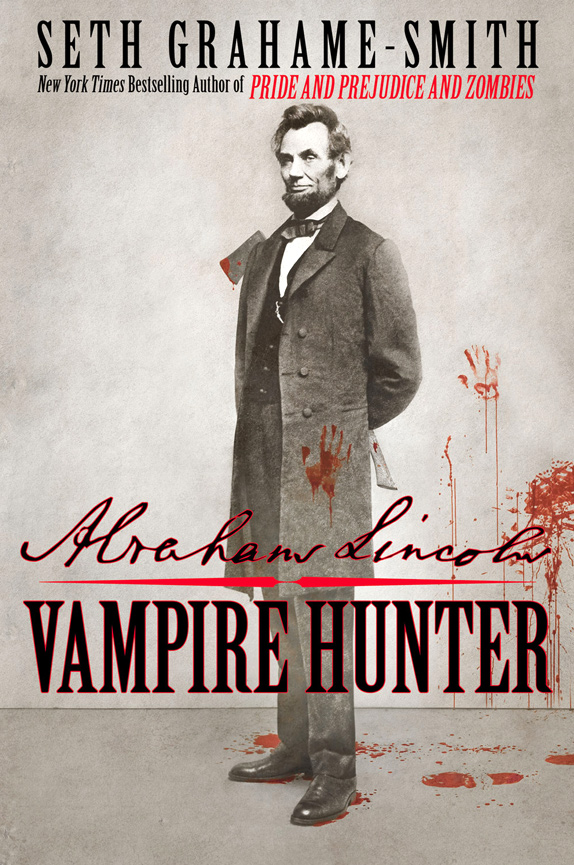
You spoke a little bit at the screening about adapting your book and how you had to do a lot more writing to get it ready for the screen. Was it difficult coming up with scenes that would be filmable?
It was, it was a long process and a difficult process because Timur is such a wildly imaginative and endlessly inventive director, so you might try eight things to get to something that works, and you might go down different avenues. I basically just trusted in the fact that he had this film in his head and we had to invent some huge aspects of it. For instance, the train sequence – not in the book. Adam the villain – not in the book. Will –not in the book.
So many of these major elements of the film that make it such an exciting summer movie were never in the book, so that’s where the discussion and the collaboration with Timur was so important because he knew the beats that we needed to make this thing wildly entertaining and visionary. So my job was to interpret that and to write it all down.
I’m quite disappointed we’re not going to get to see Timur’s literal interpretation of the Underground Railroad [at the screening Seth told us about how Timur thought the network of secret routes and safe houses used by 19th-century black slaves was actually and literally a massive railroad. That was underground. He’d planned a huge set piece around it].
Oh man. I wish too… I wish I could still get my hands on the rendering he had made of an underground… I’m sure it still exists somewhere…
Finally, being a Kiwi I should ask if you had much interaction with Martin Csokas.
I didn’t. For the most part while they were filming the movie I was off in England doing Dark Shadows and so I only came back a couple of times for set visits and things like that. But he is remarkable in the film, he is so deliciously evil, so intense and so scary that for me he’s one of the stand-out surprises of the movie.

